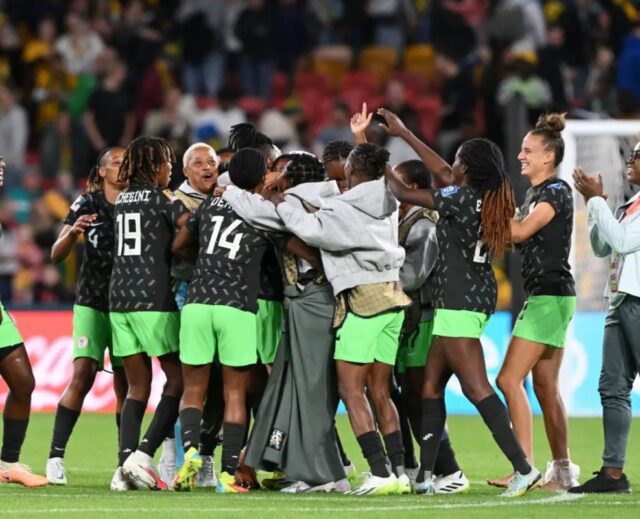Nigeria’s women’s national football team faced a challenging exit from the Women’s World Cup after their defeat by England.
Despite their efforts against the Lionesses, striker Ifeoma Onumonu used the opportunity to shed light on the team’s dire conditions back home.
Onumonu voiced her concerns about the subpar treatment that the women’s team receives from Nigeria’s Football Federation, aiming to ignite a call for change.
In comparison to the advancements towards gender equality in football, with major nations offering equal pay to all players, Onumonu highlighted the stark contrast in conditions.
“In Nigeria we don’t have access to much. Our training fields aren’t great. Where we sleep isn’t great. Sometimes we share beds. It’s not good enough,” Onumonu expressed.
She emphasized the lack of recovery facilities, access to gyms, and the quality of training pitches and stadiums. She also revealed the hardships faced by the under-20 team, including sleeping in airports for 24 hours after their World Cup.
Despite the challenges, women’s football continues to make strides globally. However, stories of upsets by teams like South Africa, Nigeria, and Jamaica emphasize the obstacles the sport still faces. Recently, FIFPRO, the global players union, announced their support for the Nigeria Women’s National Team, confirming assistance in their ongoing dispute with the Nigeria Football Federation regarding overdue payments.
As FIFPRO advocates for the players’ rights and contractual obligations, conversations about improving the conditions for women’s football in Nigeria have gained momentum. Onumonu’s words reflect a growing demand for better treatment and resources, signaling that the fight for equitable conditions in women’s football remains crucial.









